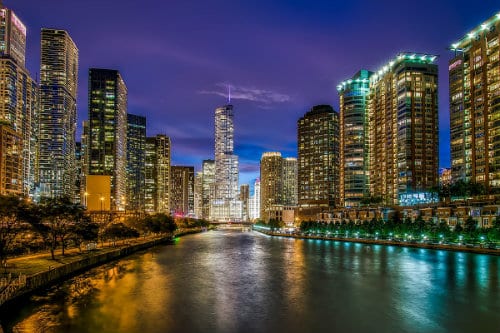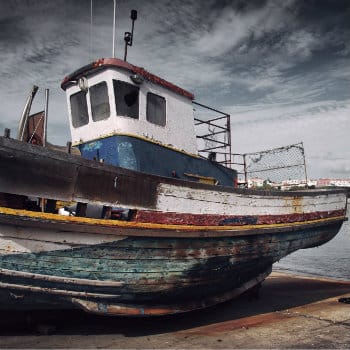After getting injured while working in an Illinois maritime setting, it’s normal to have several questions:
We can help answer your maritime work injury questions in a free initial consultation.
With the Illinois River acting as a tributary for the larger Mississippi and shores bordering Lake Michigan, the state of Illinois is a central hub for domestic and international commerce and cargo transportation. The Port of Chicago is the leading port on the Great Lakes for general cargo, transporting approximately 26 million tons of various goods and natural resources each year. Throughout the state, thousands of workers are employed in and around a total of 14 ports and harbors.
These ports provide ample opportunities for economic growth and local employment. Although these jobs offer financial security, maritime and offshore workers are at a high risk of suffering a serious injury at work. If you’re in this situation, it’s important to be aware of your legal right to financial compensation.
If you'd like to learn more from our lawyers representing injured maritime workers, contact us today.

If you work in or around navigable waters in the United States, you’re likely covered under one of two federal laws in the event of a work-related injury:
If your work duties involve directly contributing to the function of a vessel on navigable waters, you’re likely covered under the Jones Act. In addition to providing you with no-fault benefits for living expenses and medical bills, the Jones Act allows you to sue your employer if some form of workplace negligence played a role in your injury.
For example, let’s say you were injured after being struck by a piece of machinery which was being operated by an improperly trained co-worker. Your employer would likely be held liable for negligence, since it’s their responsibility to make sure all employees are properly trained.
In order to qualify, you must spend at least 30% of your work hours in the service of a vessel on navigable waters.
Maritime workers who do not meet the qualifications of the Jones Act are usually covered under the Longshore and Harbor Workers’ Compensation Act. A LHWCA claim provides similar benefits to a land-based workers’ comp claim, but LHWCA claims are made at the federal level.
Benefits included in the LHWCA include:
A LHWCA claim is usually more complex than a state-level, land-based workers’ compensation claim. Experienced legal counsel is often necessary in order to get through this complicated claims process.
Of the 14 ports and harbors in Illinois, some of the most important ones include:
With links between the Great Lakes and an inward river system, the Port of Chicago is a global leader in both international and domestic cargo transportation and trade. Commercial deep-water vessels transport goods through the St. Lawrence Seaway between the port and the Atlantic Ocean. Barges transport goods between the port and the Gulf of Mexico along the Mississippi and Illinois Rivers.
Approximately 7,000 workers are directly employed in maritime commerce operations at this port, while roughly 50,000 total jobs are either directly or indirectly linked to the Port of Chicago.
The Port of Channahon contains several privately-owned docks, ports, harbors, and other maritime facilities. Companies that operate from this port include:
Located at the heart of the Illinois Waterway system, the Port of Joliet is in a prime location for shipments from the Great Lakes all the way south to the Gulf of Mexico. Cargoes which are frequently shipped upstream from this port include petroleum, chemicals, and coals for power plants. Goods frequently shipped downstream towards the Gulf of Mexico include soybeans and corn.
If you’ve been injured while working on or near a ship, port, dock, harbor, or another maritime setting, it’s important to be aware of your right to financial compensation. As we touched on earlier, you’ll likely be filing a claim under the Jones Act or the LHWCA. However, the process for filing one of these claims can be complex and involves the nuanced system of maritime law. Additionally, you’re likely to face resistance from your employer’s insurance carrier when you try to recover the compensation you deserve.
When seeking compensation, it’s usually wise to at least discuss your case with a maritime lawyer in a free consultation. This way, you can get a better idea of your rights and how a lawyer can help guide you through the process. To find out more about your options after a maritime or offshore work injury in Illinois, contact us today to speak with one of our experienced maritime injury lawyers.
Similar Reading: Injured California Offshore Workers Are Entitled To Financial Compensation


 info@legalherald.com
info@legalherald.com